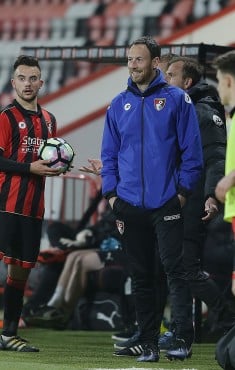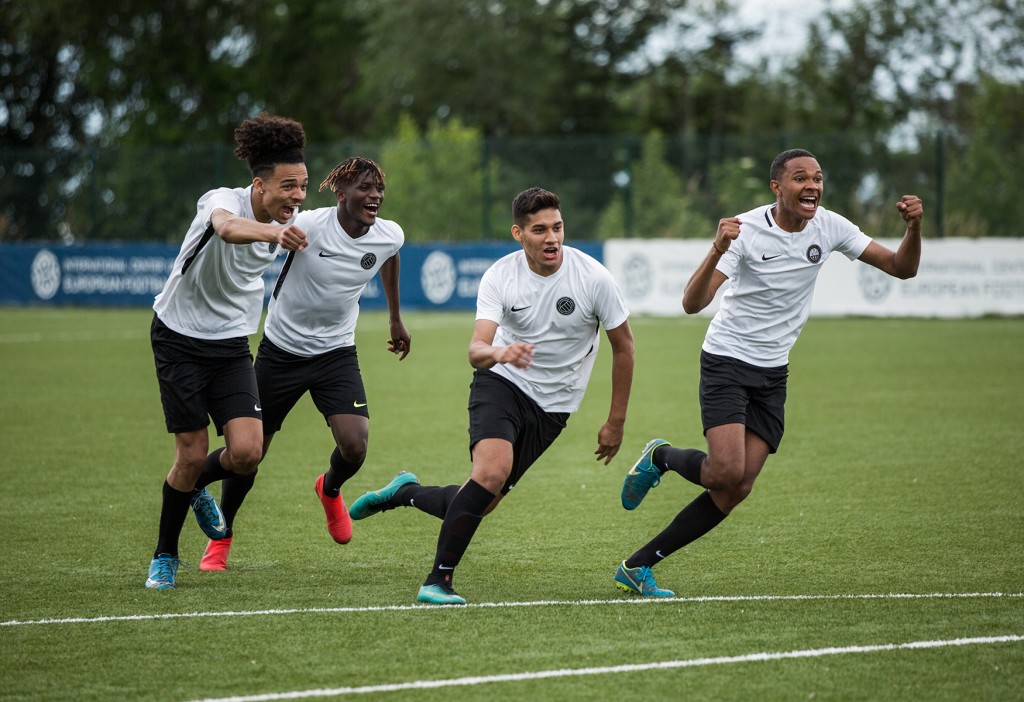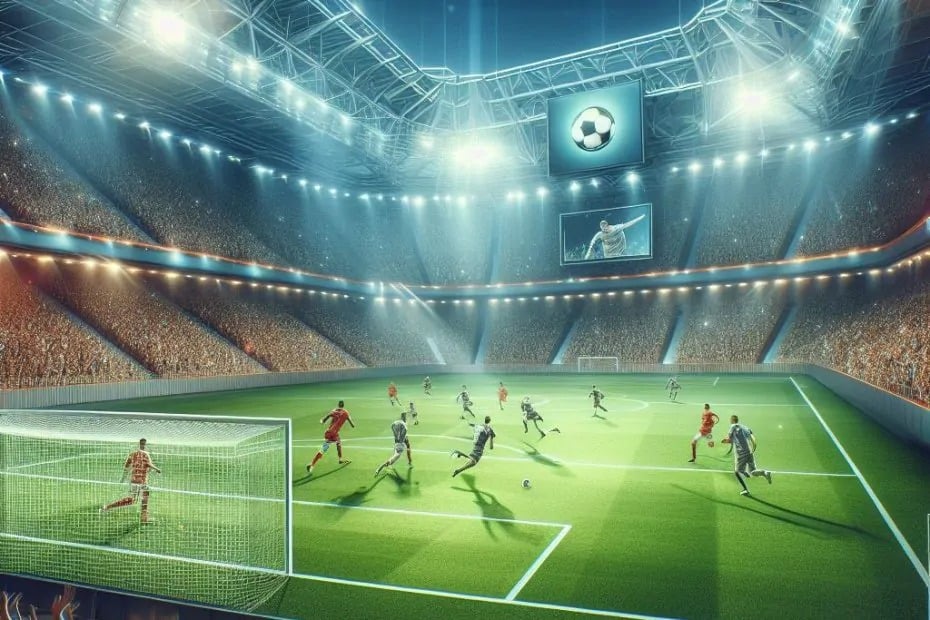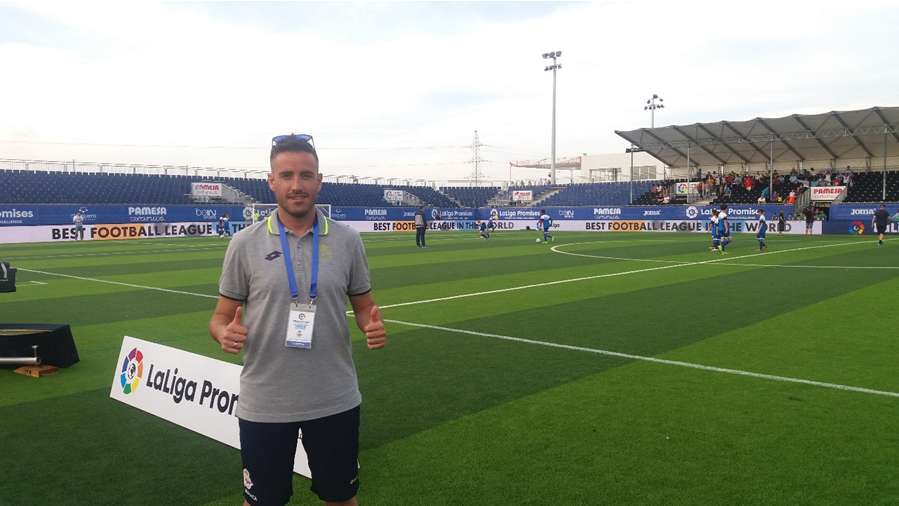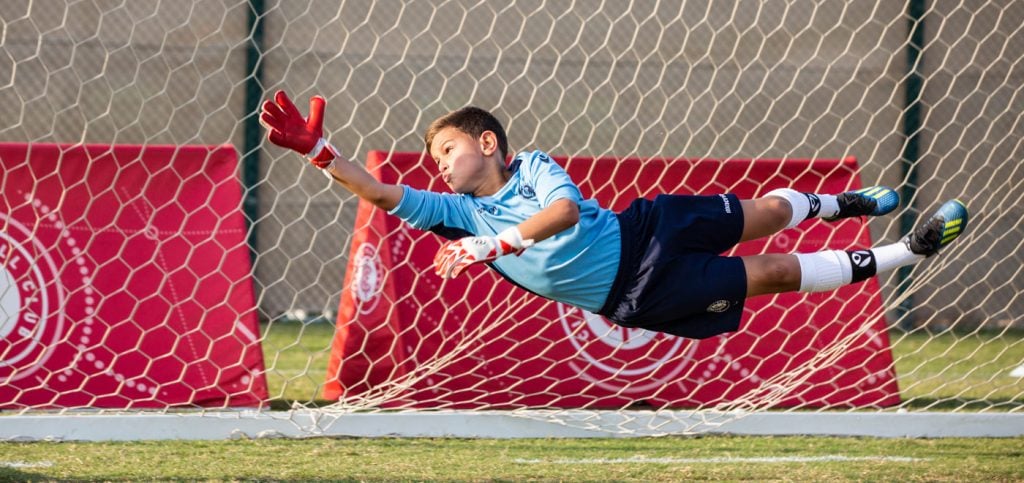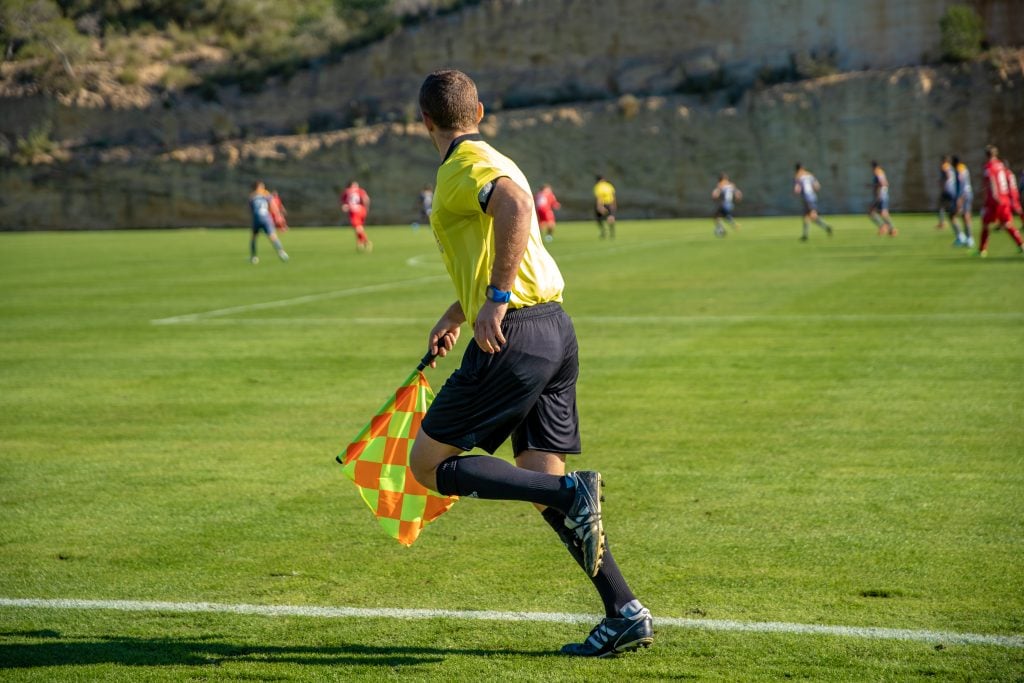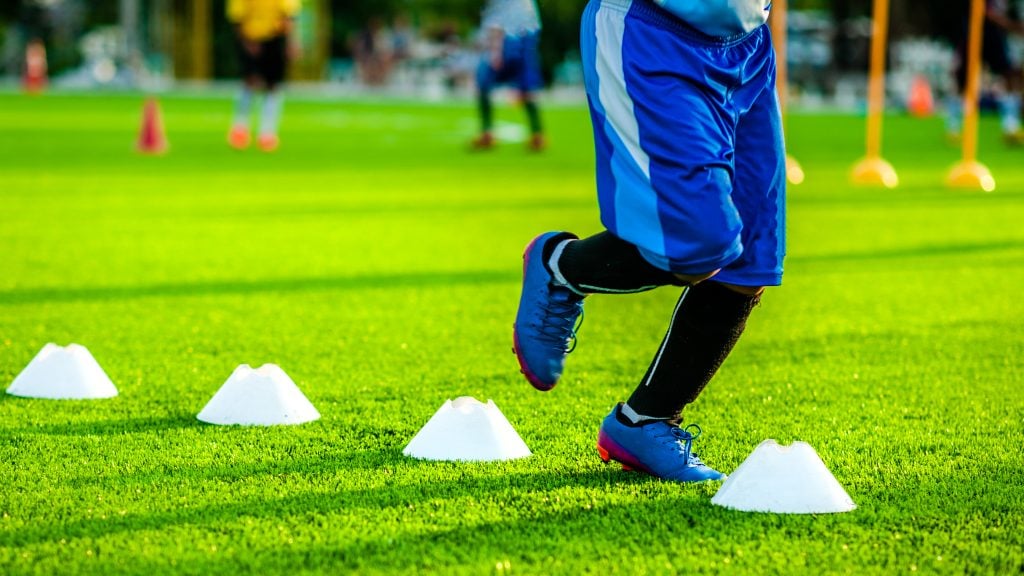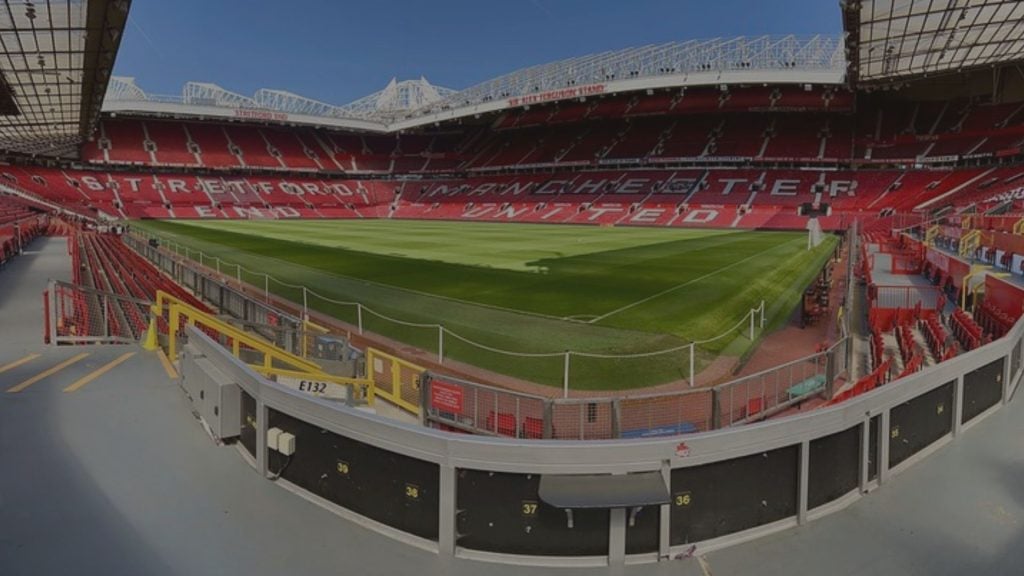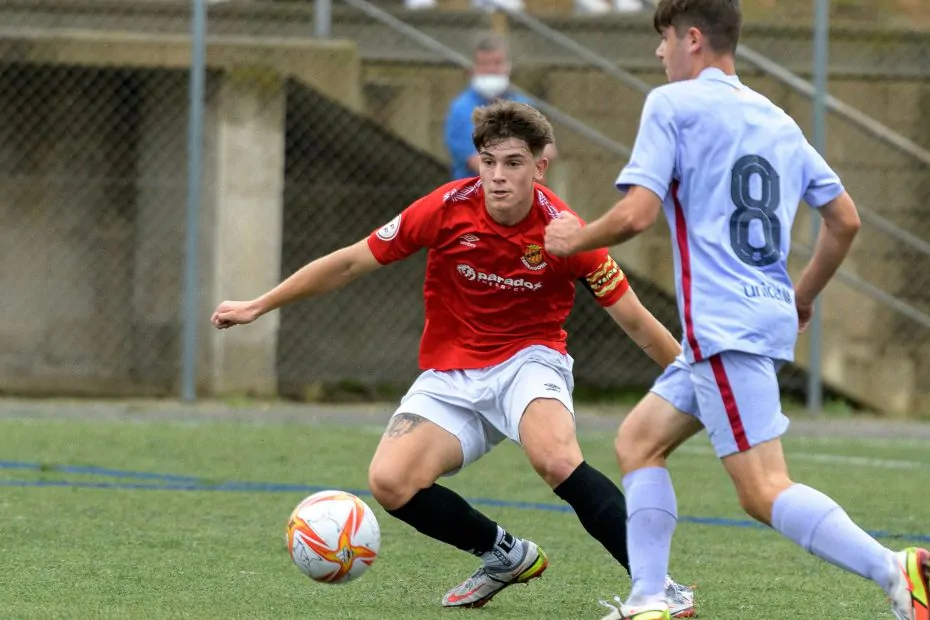As we continue our series of interviews with coaching professionals, we thought it only right that we should take a look at YOUTH GOALKEEPER TRAINING. Goalkeeper coaching is a subject that is sometimes overlooked and often undervalued but it is area of football that has changed significantly in recent years.
As the role of the goalkeeper has changed, so has the job of the coach. But has the modern game adapted sufficiently to accommodate the pioneers in this area?
To find out this and more, we spoke to one of the brightest and most talented youth goalkeeping coaches in the game, STEVE MANNING of Premier League side AFC BOURNEMOUTH.
Explore goalkeeper training programs
Interview with Goalkeeping Coach Steve Manning
? Hi Steve, thanks for agreeing to share your knowledge and experience with us here at Ertheo. Before we start with the main questions, would you like to tell us a bit about yourself and your current role within the game?
Yes, my name is Steve Manning, I have been coaching now for the best part of 17 years, with the last seven of those being in either senior or elite-level coaching roles. Currently I am working as U23 and Lead Academy Goalkeeping Coach at AFC Bournemouth.
? As you say, you are now currently working at the elite level. But what other levels and age ranges have you worked with during your career?
I have coached players of all ages and levels – with the exception of international. Throughout my career, I have worked in most areas of coaching, including with the little ones (“soccer tots” or “little kickers”) in community programmes. Early in my career, I also worked at soccer schools and after-school clubs, and I’ve worked with a coaching company in the USA, where you coach an incredible amount of hours for very little pay but gain fantastic life experiences.
While working towards my UEFA B licence, I was asked by one of the coaches if I was interested in doing some part-time coaching with their goalkeepers at Salisbury City FC who were in the Conference South at the time. That was my first real job as a dedicated goalkeeping coach – I had coached goalkeepers before, but not as my sole role.
Salisbury got promoted to what is now the National League and due to different developments, I moved to Havant and Waterlooville FC (again Conference South), where I worked as part-time goalkeeper coach, along with other roles, including one at Eastleigh FC.
My first academy role was at Portsmouth FC as goalkeeper coach for the U9-U16s. After one season there, I was asked by AFC Bournemouth if I wanted to head the goalkeeping at the academy. Initially this was also part-time but it soon evolved into the full-time role I hold now.
Now, I train all ages from U7 – U23, and have covered and assisted the first team goalkeeper coach, working with international footballers both at development ages and at senior level.
So, in a nutshell I have worked at U4-U19 grass roots level, U7-U18 academy level, senior amateur level, senior semi-professional level and senior professional level, from the Conference to the Premier League.
Read about how to attend the world’s best goalkeeper training programs
? You already have an impressive CV as a coach but can you tell us a little about your early days and what inspired you to pursue a career in football?
As a kid, I was a sportsman over a footballer. I played all sports, but the social aspects of football made me narrow my involvement in sport to football from U14 onwards.
From then on, I fell in love with football and was always playing it or watching it. But only ever from a goalkeeper’s perspective, the other parts of it didn’t interest me at all!
? As a young player with an interest in goalkeeping, your role models and idols must have been very different to most young players. Who were your biggest influences at that time?
I watched a lot of Italian Football at the time (from 1994 onwards), it was the best league in the world back then. Sebastiano Rossi was the goalkeeper I most drawn to, but I watched others too such as Pagliuca and Toldo, then later on Sebastian Frey, Peruzzi, and obviously Gianluigi Buffon. Watching the Premier League, my main source of interest was Peter Schmeichel.
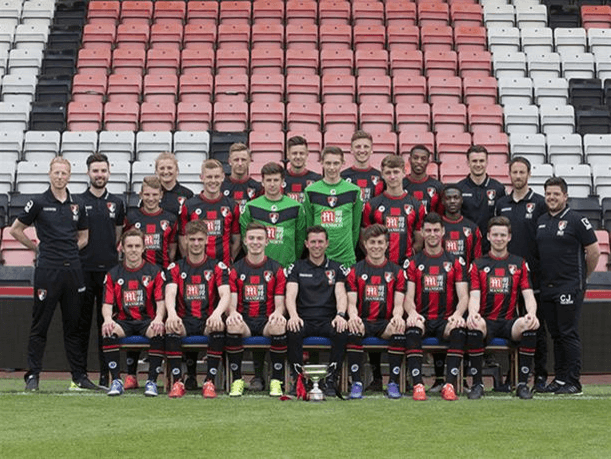
? We mentioned in another article that the goalkeeping position is often seen as a maverick role, a bit like the drummer in a band! What do you think it was that drew you to goalkeeping in particular?
I think it’s a mindset thing. Most goalkeepers might fancy themselves as a striker but realistically, they only ever want to be a goalkeeper. You’ve got to really WANT to be a goalkeeper! Why else would you chose it? (Laughs).
Do you REALLY want to be a great goalkeeper? Click here
? How do you perceive the role of the goalkeeper in the modern game and how do you think it is perceived by others?
Within the modern game, the goalkeeper is the 11th footballer, like a throwback to the old school sweeper (when the team is in possession or out of possession but in the opponents half).
The goalkeeper, in his more natural state, must be a game winner, an athlete that encompasses power, agility, decision making, reaction and speed. An athlete that can cope with all the demands of his environment with intense focus and mental strength.
I think the image of the goalkeeper is changing but it is a slow process. We still have goalkeepers in the game that are purely shot-stoppers and goal-kick takers, and I think this is because we have coaches that either facilitate or deliver poor information to goalkeepers. Therefore, this harms the “game winner” that you need your goalkeeper to be, as their actions and decisions are often incorrect to the situation.
? The role may be changing but what is the infrastructure like for youth goalkeeper training today, particularly at grass roots level?
This goes back to the facilitators or those involved that do not have enough knowledge to develop the goalkeeper in terms of their long-term ability. Where information that is given situationally can often conflict.
The change in the amount of goalkeeping coaches that actually coach the finer details has been obvious with the sudden upturn of top goalkeepers coming through at a young age such as De Gea, Neuer, Pickford, Butland, Donnarumma, Courtois, Trapp, Ter Stegen and Oblak etc.
Before, these players would have been in a first team environment for nearly 10 years before being given debuts at maybe 26 or 27 years old.
? What particular changes have been made that has helped this current crop of young keepers to emerge at the elite level and what further changes would you like to see?
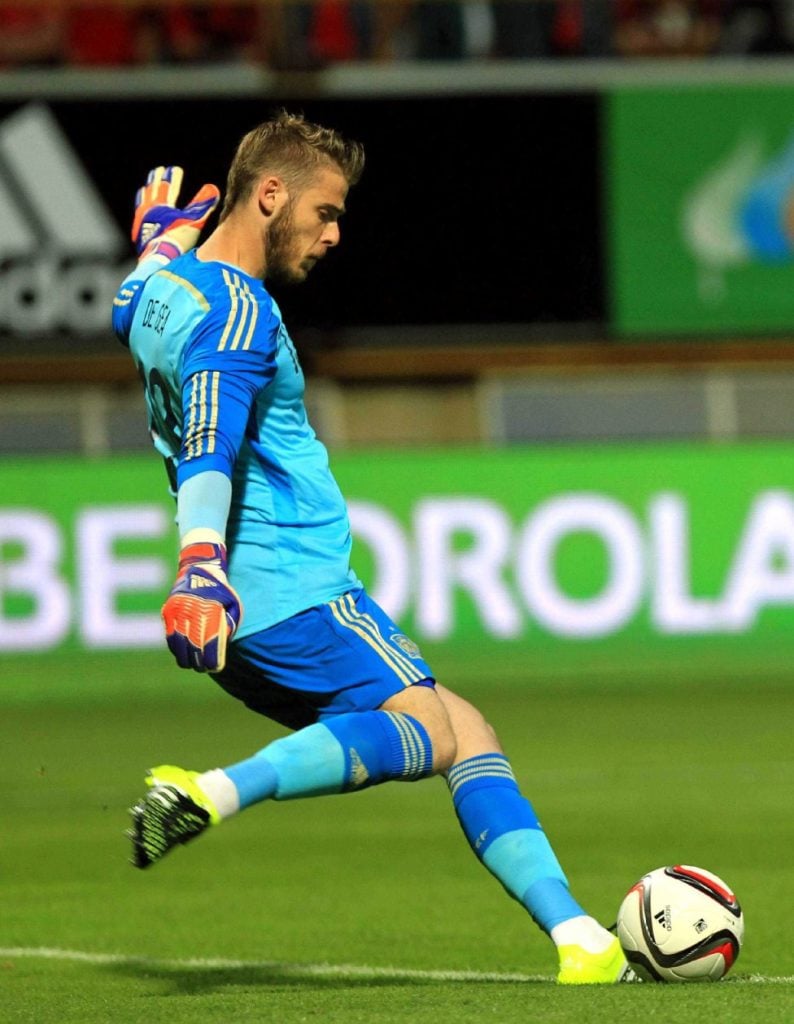
There have been huge steps forward in the way that goalkeepers are trained. There are more goalkeeping schools out there, and there are dedicated goalkeeping coaches at every professional club. I’m not suggesting that they are all excellent, but they will deliver specific training practices with the goalkeeper in mind. Whereas the majority (not all) of team coaches will deliver a session to enable success for the other 10 players. In that respect, the game is designed for the goalkeeper to fail, as people want goals, but goalkeepers don’t! So you are fighting against that objective.
I personally think that a more rounded approach to youth goalkeeper training is needed. To do my goalkeeping badges, I had to complete the equivalent in terms of coaching outfield players. Why does the outfield coach not need full knowledge of the goalkeeper’s position? The goalkeeper is nearly 10% of the team and the only player that you can’t play without. You can change formation or strategy but the goalkeeper is the one constant. Yet in terms of properly upskilling coaches, this is still overlooked.
To be a Level 1 coach, you should need to know the FA Level 1 and Youth Module 1 as well as the Goalkeeping Level 1 and Level 2 and so on! I know they have recently linked the youth modules to levels, but why not include the goalkeeping badge too?
? Your passion and dedication to your role is very clear, but what is your overall philosophy and what drives you every day as a coach?
My philosophy is that the goalkeeper is as important a part of the team as any other, no more, no less. I used to tell my goalkeepers that if you make a mistake, don’t worry, others have also made mistakes and that is why you being are called into action. But this is wholly wrong and generates a lack of accountability and blame culture amongst goalkeepers.
The goalkeeper, in defensive terms, is there to stop the threat on goal regardless of what has happened leading up to that point. That is the goalkeeper’s responsibility.
Yes, mistakes are allowed, because that’s how learning occurs, but I am more interested in the reaction to the mistake. That is what builds character. Having said that, continuous mistakes are not acceptable, as this indicates that learning hasn’t occurred.
? Having the passion, knowledge and philosophy is one thing but passing that on to a group of young players is another. As a result, every coach has to find the most effective way of implementing their methods. How would you describe your coaching style? And how would those around you describe you?
I’m intense and passionate about my role, and the role of the goalkeeper. I have high standards and like to think that I create an environment that echoes those standards. Work ethic is very important to me, as well as the integrity of the goalkeepers within my care. I relax and have fun and build positive relationships with each goalkeeper once the work is done. I am very fortunate to work at the level I do and the goalkeepers need to understand their fortune too, as football at the highest level can be ruthless. A strong character is essential for any talented footballer playing as a goalkeeper.
Others might say that I am: “a technician in terms of coaching, demanding a high level of detail, with a clear vision of what is required.”
Related article: Learn more about elite soccer goalkeeper training
? We have tried to explore in other articles, and in other interviews, exactly what it is that makes a great football coach? From your perspective, what are the essential or common elements that a top coach must possess?
I think a great coach knows what bits of the puzzle are missing in terms of the player, and how to get the players to develop those missing pieces.
Essentials elements are positive obsession, the coach has to live their job, they have no real concept of time in terms of “well it’s my lunch break etc.” To them, the most important thing is the development of their players.
They also need a detailed level of knowledge in terms of requirements for the game – all four corners, the sighting of potential over ability. They must also be always willing to learn and have an open mind-set.
? There has been much debate about the age at which players should begin developing their technical and tactical skills. What is your opinion on this matter with regards to goalkeepers?
This is a tough one, as I believe that goalkeeping is a mind-set: somebody can be technically excellent and tactically astute but if they lack bravery, are a poor decision maker, lack emotional control or have little resilience, they are not a goalkeeper.
The technical and tactical side of things are a journey. With correct guidance, any mistakes made will help generate the correct skill sets and positioning. It is also important to consider the individual. Each goalkeeper will do things different due to their own physical and mental makeup.
Of course their training age has to be a factor. You may have a child who has been a goalkeeper since eight years old, and by 12 they are technically excellent. Then you scout a player at 14 who has decided to play in goal to help out his team, and is just an incredible athlete and a well-rounded sportsman but lacks the technical excellence that your 12 your old has.
I think technical and tactical training should always be part of the program, as it will always be a part of a player’s coaching life, but when does it need to be developed seriously? As soon as possible, but as late as required.
? How many hours a week did you train when you were a young player? And how many hours would you recommend for a young player today?
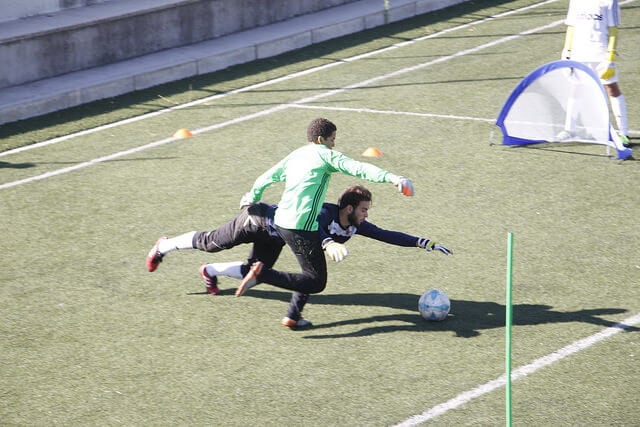
I trained or played every day for a minimum of two hours but sometimes up to five or six. I played during school breaks, after school in the sports hall and late at night down the park, either on my own with my mates. My dream was to become a professional but I never made it. I didn’t get the chance to work with a goalkeeper coach, and I started playing football late in terms of youth development. Back then, there was a lack of specialist goalkeeper coaches and as a result, I simply wasn’t good enough.
In terms of young players today, there is always something that can be done. I work with each goalkeeper between three to six hours a week depending on the program we are working on, but I would always like more. However, what I would ask is: How much of that time does the individual spend working? And how much fun are they having? Because if you love something, you give it everything you’ve got. You don’t want to burn out a player because you see the potential, but they never realise it because they stop loving what they is doing.
If they love what they are doing, they will continuing working when they are away from you and the club. That’s why, when they are with you, it is important that you fully transmit and they fully understand the level of detail that you are coaching. That way, they can then go away and coach themselves!
I personally would work with a goalkeeper for one hour a week at Foundation phase (U5-U11), two hours a week Youth Development phase (U12-U16). Then at Scholarship to Pro level, dedicate at least an hour a day to specific goalkeeper work. After all, it is now their job.
? You state that players need to love what they are doing. What goalkeeper training, drill or exercise did you enjoy most as a player?
Playing games. Because it’s the most variable and most unpredictable type of session and undoubtedly where I made my best saves.
Read about the world’s best summer camps for goalkeeper training programs
? What influence did your own coaches have on you (if any), in terms of personal as well as technical and physical development, and which elements have you carried forward into your own coaching style?
My coaches did not give great detail, so I never felt like I was sure of what was required of me. But socially they were very likeable and got everyone onside – they made you feel like you were a part of something. However with that social side, came the demand for hard work.
? As a young player, were you very disciplined in terms of diet and generally leading a responsible and healthy lifestyle?
My family are of a Military back ground, so discipline has always been a big part of life. However, when I was young a friend of the family cooked a meal, after which I was violently ill. After seeing the food come up and what was in it (sorry for that image!) it put me off vegetables for a very long time. Then I met my wife, who explained that I couldn’t tell my children to eat healthily and finish their vegetables if I wasn’t prepared to. So, I eat far healthily now than I ever did as a child. However, I grew up to be 6’4” and joined HM Royal Marines at 18 years old, so it didn’t do too much damage! (Laughs)
? Apart from not eating your vegetables! What mistakes did you make that you would you urge others to learn from?
I never worked my feet as a goalkeeper, I’d use my height to get around the goal. Now, footwork is integral to the development of any goalkeepers I work with.
Also, players should never be afraid to ask questions. I was socially introverted for a long time as a child, so would miss out on learning opportunities, as I was too afraid to ask questions.
? Have you witnessed a situation where luck has played a major part in someone’s career? Do you believe in ‘lucky breaks’ and how to you address this subject with young players that you coach?
I don’t believe in luck at all. There is a saying that says: “Luck is when preparation meets opportunity.” I fully believe that if you’re prepared for when an opportunity arises, then you’ll be able to make the most of that opportunity. There are moments that define people’s careers, but luck has nothing to do with those moments. It is just the years of preparation coming to fruition at that point in time.
? What advice would you give to any aspiring young goalkeeper today?
You should want to be the best, but be patient. Don’t be critical of yourself, as a goalkeeper you’ll have enough critics, but be analytical of your performances. Don’t set goals that may be out of your control; for example, clean sheets.
Remember, mistakes are opportunities to develop, but if you make the same mistakes continuously, you need guidance from others.
Most of all, enjoy playing – passion is the greatest motivator.
? There has been explosion in demand for soccer camps in recent years, especially here in Spain. How valuable do you think such an experience can be for a young player – training with professional coaches in a multi-cultural environment, often in a foreign country?
I think having varied cultural experiences are essential in today’s game, there are so many ways the game is played but not every style suits every player. However, every environment encourages different elements of development.
The Twitter account of Steve Manning is :@SM_futbolcoach
If you enjoyed our youth goalkeeper training interview, and are interested in giving your child access to specialist soccer training, please check out our website of get in touch today on (+44) 203 769 94 43 or (+34) 902 750 359.

